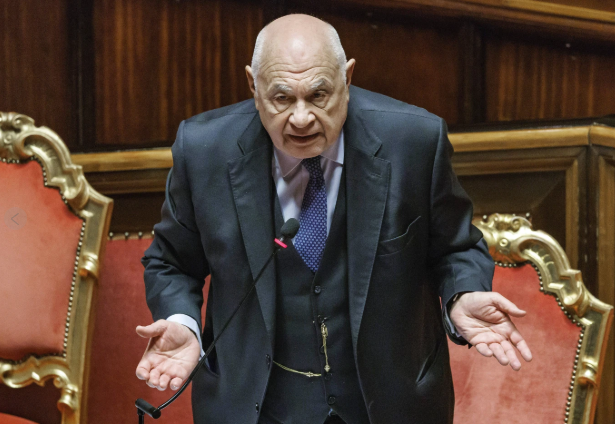
Italy is facing widespread outrage following the unexpected release of a notorious Libyan warlord due to a legal error, igniting protests and political backlash across the country. The controversial decision to free the warlord, Khalifa Haftar, from custody after his arrest earlier this month, has sparked debates over the integrity of Italy’s judicial system and its role in international justice.
Haftar, who has been a key figure in the Libyan civil conflict, was detained by Italian authorities earlier this month after a warrant was issued for his arrest on charges of war crimes and human rights violations. He is accused of being responsible for numerous atrocities during the Libyan civil war, including the killing of civilians, the use of banned weaponry, and the destruction of civilian infrastructure. His arrest was hailed as a major step forward for international justice, as many countries have called for his accountability for his role in the conflict.
However, Italian officials announced on January 23, 2025, that Haftar had been released due to a procedural error in his detention. The Italian Ministry of Justice explained that an oversight in the documentation related to his arrest had led to the wrongful detention, and as a result, the Libyan warlord was granted his release after spending only a few days in custody. This announcement has led to widespread shock, disbelief, and anger among both Italian citizens and international human rights organizations.
This is an absolute failure of the Italian justice system, said Maria Rizzo, a leading Italian human rights activist. “How can someone who is accused of war crimes be released on a technicality? This sends the message that international law and the suffering of innocent civilians don’t matter.”
The decision has sparked protests in cities across Italy, with demonstrators calling for the resignation of senior officials within the Ministry of Justice and demanding that Haftar be immediately re-arrested and prosecuted. Many Italians are particularly furious given the country’s historical stance on human rights and international law, with numerous organizations accusing Italy of undermining its reputation as a defender of justice.
Political leaders from across the spectrum have condemned the legal error, with opposition politicians demanding a full investigation into the events leading to Haftar’s release. This is a scandal that undermines the trust the Italian people have in their legal institutions, said Alessandro Di Maio, leader of the left-wing opposition party. The government must take immediate action to rectify this mistake and ensure that war criminals like Haftar are held accountable.
The government of Prime Minister Giovanni Rossi has expressed regret over the incident and promised to launch a comprehensive review of the situation. We deeply regret the error that led to the release of General Haftar. We are committed to ensuring that international justice is respected, and we will take all necessary steps to address this issue, said Interior Minister Marco Bellini.
Despite the outrage within Italy, Haftar’s release has also drawn criticism from the international community, particularly from human rights organizations and the United Nations. The release of Khalifa Haftar is a serious setback for accountability in Libya, said Louise Rees, a spokesperson for Human Rights Watch. The international community must ensure that individuals accused of war crimes are brought to justice, regardless of political considerations.
Libyan authorities, who have long been divided over Haftar’s role in the conflict, have not yet made any official statement on the release. However, analysts note that his freedom could complicate ongoing peace talks in Libya, as Haftar has significant political and military influence in parts of the country.
The warlord’s actions during the Libyan Civil War, particularly his leadership of the Libyan National Army (LNA) and his campaign to capture the capital, Tripoli, have made him a controversial figure both in Libya and abroad. While he enjoys support from certain factions within Libya, especially those in the east, many view him as a war criminal responsible for numerous atrocities, including the bombing of civilian areas and the unlawful detention of political opponents.
Legal experts have weighed in on the situation, suggesting that the procedural error may be a symptom of larger issues within Italy’s judicial and immigration systems, particularly when it comes to handling high-profile international cases. This was not just a clerical error; it points to a larger systemic problem in how such cases are managed, said Pietro Delvini, a legal expert at the University of Rome. There needs to be a more rigorous approach to processing high-stakes international arrests.
The incident also raises broader questions about Italy’s role in the global fight against impunity for war crimes and its commitment to upholding international justice standards. For many Italians, the release of Khalifa Haftar is seen as a failure of the country’s legal system to live up to its international obligations.
As pressure continues to mount on the Italian government, it remains to be seen what steps will be taken next. For now, the focus is on ensuring that Haftar faces trial for his alleged war crimes, with Italian citizens and the international community demanding that justice is served, regardless of the legal misstep that allowed him to walk free.

